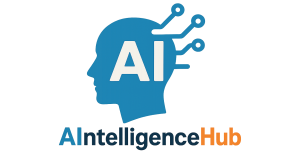
In 2025, AI business automation will reshape industries with cutting-edge innovations. Decision-making tools process vast data for real-time insights, enhancing accuracy and efficiency. Improved natural language processing boosts communication and customer satisfaction by 30%. Autonomous systems manage operations, potentially increasing productivity by 30% while reducing costs. Intelligent customer interaction platforms, set to be used by 78% of companies by 2025, strengthen business relationships. Predictive maintenance prevents failures, ensuring smooth operations. Discover more advancements that could redefine your business strategy.
Advanced AI-Powered Decision-Making Tools

When considering the future of business automation in 2025, it is crucial to recognize the transformative role of advanced AI-powered decision-making tools. These tools enable you to harness contextual analysis for more informed decisions. By processing vast amounts of data, they provide real-time insights, allowing you to adapt strategies swiftly and effectively. Imagine the advantage of identifying trends and anomalies as they happen, giving you a competitive edge. The integration of these tools into your business processes enhances efficiency and accuracy, reducing human error. Data-driven decisions become the norm, as AI refines its models with continuous learning. As you look to 2025, embracing these innovations means staying ahead in an ever-evolving market landscape. Don’t overlook the power of AI in shaping your future.
Enhanced Natural Language Processing Capabilities
As businesses approach 2025, enhanced natural language processing (NLP) capabilities will redefine how you interact with AI systems. NLP advancements focus on contextual understanding, allowing AI to grasp nuances in communication. This means your systems will interpret and respond more accurately to complex queries. Data shows that improved NLP increases customer satisfaction by 30%, as AI can address needs with precision.
Sentiment analysis will play a significant role, enabling AI to detect emotions and tone in real-time. By analyzing sentiment, your business can tailor responses to maintain positive interactions or mitigate potential issues swiftly. These innovations will empower your business to streamline operations, enhance customer engagement, and make informed decisions, all while providing a competitive edge in a dynamic market.
Autonomous Business Process Management Systems
By 2025, autonomous business process management systems (BPM) are set to revolutionize organizational workflows, allowing AI to autonomously execute, monitor, and optimize operations with minimal human intervention. You’ll witness a seamless integration of autonomous workflows that leverage advanced business intelligence to enhance decision-making. These systems analyze real-time data, identifying inefficiencies and proactively adjusting processes to meet dynamic business needs. According to recent studies, organizations implementing autonomous BPM systems could see productivity boosts of up to 30%. This transformation will empower businesses to respond swiftly to market changes, greatly reducing operational costs. By adopting these AI-driven solutions, you’ll not only streamline operations but also gain a competitive edge through enhanced agility and smarter resource allocation.
Intelligent Customer Interaction Platforms

Building on the momentum of autonomous BPM systems, intelligent customer interaction platforms are set to redefine how businesses engage with their clients by 2025. These platforms leverage conversational interfaces to facilitate seamless communication, offering personalized experiences that drive customer satisfaction. By 2025, 78% of businesses are projected to use these interfaces, enhancing customer interaction quality.
Sentiment analysis plays a vital role, allowing platforms to assess emotions and adapt responses accordingly. This guarantees clients feel understood and valued. Data shows that companies utilizing sentiment analysis report a 15% increase in customer retention. As businesses prioritize understanding client emotions, intelligent platforms become essential in fostering stronger relationships. You’re looking at a future where customer engagement is more informed, responsive, and effective.
Predictive Maintenance and Operational Efficiency
While the landscape of business operations advances, predictive maintenance emerges as a cornerstone for enhancing operational efficiency by 2025. By leveraging cutting-edge sensor technology and data analytics, you’ll transform how you maintain equipment, reducing downtime and costs. These technologies analyze real-time data, predicting failures before they occur, ensuring seamless operations.
Consider the impact:
- Increased reliability: Keep systems running smoothly, reducing unexpected breakdowns.
- Cost savings: Avoid high repair expenses with timely maintenance.
- Improved safety: Minimize risks associated with equipment failure.
Data-driven insights help you make informed decisions, optimizing resource allocation and enhancing productivity. As you integrate predictive maintenance into your strategy, operational efficiency becomes not just a goal but a reality. Embrace this innovation to stay competitive and resilient in an ever-evolving market.
AI-Driven Supply Chain Optimization
As businesses harness the power of predictive maintenance to streamline operations, AI-driven supply chain optimization offers another significant leap forward in operational excellence. You’re looking at a future where supply chain resilience isn’t just a goal but a reality. By leveraging real-time analytics, AI systems predict disruptions before they occur, allowing you to mitigate risks efficiently. Imagine having the ability to adjust inventory levels, reroute shipments, and manage supplier relationships with precision. AI doesn’t just automate these tasks; it enhances decision-making by providing actionable insights. The result? Reduced costs, increased efficiency, and a competitive edge in the marketplace. By embracing these innovations, you’re not just keeping up with industry standards—you’re setting them, ensuring your business thrives in an ever-evolving landscape.
Personalized AI-Enabled Marketing Strategies

In the domain of marketing, the integration of AI into personalized strategies is transforming how businesses engage with their audience. Leveraging customer segmentation and data-driven insights, you’re now able to craft marketing that resonates deeply. AI algorithms analyze behavioral data to predict preferences, driving targeted campaigns that enhance customer experiences.
- Heightened Engagement: Feel the satisfaction of knowing your messages hit the mark with precision.
- Boosted Conversion Rates: Witness a tangible increase in sales as personalization aligns offers with customer needs.
- Stronger Loyalty: Experience the joy of building lasting relationships with your audience through tailored interactions.
These innovations empower you to refine your approach, enabling a precise focus on what’s most effective. It’s about being insightful, responsive, and ultimately, successful.
Frequently Asked Questions
What Ethical Considerations Are Associated With AI in Business Automation?
You’re steering ethical considerations in AI business automation, focusing on bias mitigation and transparency standards. Ensuring AI systems don’t perpetuate bias is essential. Implement data-driven strategies to identify and minimize biases. Establish transparency standards, allowing stakeholders to understand AI decision-making processes. By maintaining an analytical approach, you’ll foster trust and accountability, balancing innovation with ethical responsibility. Address these areas proactively, enhancing your organization’s reputation and effectiveness.
How Can Small Businesses Benefit From AI Innovations in 2025?
In 2025, small businesses can harness AI tools to drastically enhance workflow optimization while simultaneously elevating customer engagement. Imagine cutting costs as you increase efficiency—AI innovations make it possible. By adopting these tools, you’ll streamline operations and reduce expenses, freeing up resources to focus on customer relationships. This juxtaposition of optimizing workflows and boosting engagement creates a dynamic environment for growth, offering small businesses a competitive edge in a rapidly evolving market.
What Is the Cost of Implementing AI Automation in Businesses?
When considering AI automation, you need to evaluate implementation costs and potential return investments. Initial expenses vary by scope and technology, but integrating AI could lead to significant savings and efficiency gains. Analyze data-driven case studies to understand cost-benefit ratios. Businesses often see increased productivity and reduced operational costs, offsetting initial investments. Guarantee a detailed cost analysis to project long-term benefits, maximizing your investment in AI innovation for sustainable growth.
How Do AI Advancements Impact Job Markets and Employment?
Imagine a company that automates its customer service using AI. It might initially cause job displacement, as roles become redundant. But, it also offers opportunities for skill enhancement. Employees can shift into roles focused on managing and improving AI systems. Data shows that while some jobs vanish, new roles emerge requiring advanced skills. You’ll find that AI advancements don’t just replace jobs; they transform them, demanding a workforce ready to adapt and evolve.
What Are the Privacy Concerns With AI in Customer Data Handling?
When handling customer data with AI, you face privacy concerns that revolve around data security and consumer trust. Data breaches can compromise sensitive information, undermining trust. You must implement robust encryption and access controls to guarantee data security. Transparency about AI’s data handling processes is essential to maintain consumer trust. Analyzing trends shows that companies prioritizing privacy see increased customer loyalty and reduced legal risks, highlighting the importance of addressing these concerns.
Conclusion
In the blink of an eye, 2025’s AI innovations are reshaping business automation. You’re seeing advanced decision-making tools and enhanced NLP capabilities drive smarter operations. Autonomous systems streamline processes while intelligent platforms elevate customer interactions. Predictive maintenance boosts operational efficiency, and AI optimizes supply chains. Personalized marketing strategies are hitting the nail on the head, targeting consumers with precision. The data’s clear: embracing these technologies is essential for staying ahead in the fast-paced business world.



